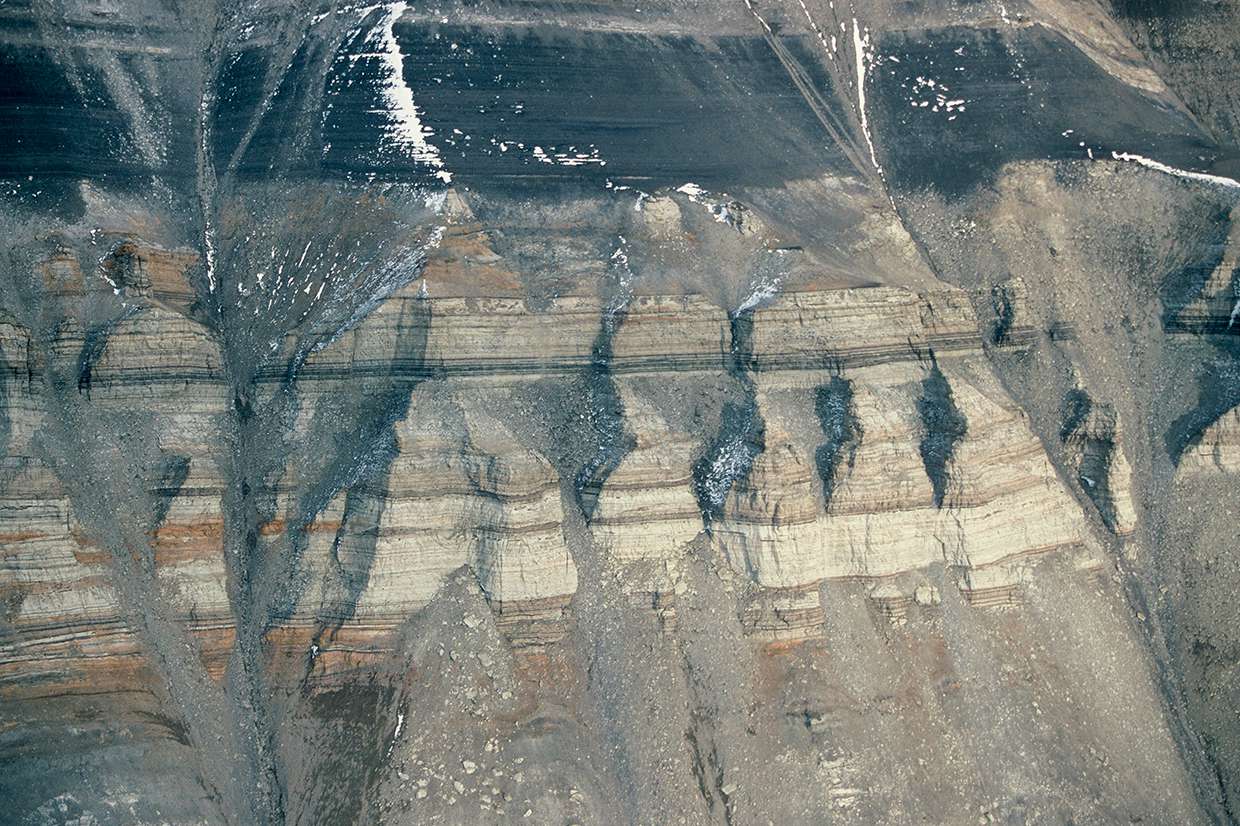
Mineral resources
Mining in Antarctica would be very difficult, dangerous and expensive as the climate is so harsh, the ice is very thick and Antarctica is very remote from major centres of population.
Warm up
Commercial mining in Antarctica is prohibited. Consequently, no significant mineral deposits or oil reserves have been identified, although minor occurrences of minerals have been identified from across the continent and oil has been suggested to lie offshore. Even if mineral deposits or oil reserves were identified in Antarctica, their extraction would be very difficult, dangerous and expensive as the climate is so harsh, the ice is very thick, and Antarctica is very remote from major centres of population. This would make the transportation of minerals and equipment in and out of Antarctica hazardous. Drilling would also be difficult because of the vast quantities of moving ice and glaciers as well as the huge depth (5km at its thickest) that would be required to drill to reach the minerals making it too expensive to be economically viable.
Could all this change in the future? Could climate change and associated ice loss reveal significant mineral deposits and make the Antarctic more accessible and drilling easier? Could vital supplies of oil in other areas run out, making Antarctic oil, if discovered, economically viable? Would the Antarctic Treaty Consultative Parties be under too much pressure to lift the ban on mining?
The ban on mining, as found in Article 7 of the Protocol on Environmental Protection to the Antarctic Treaty, could only be overturned if all Antarctic Treaty Parties agreed, but there is provision to review the Protocol in 2048. Learn more about mineral deposits in Antarctica at British Antarctic Survey – Mining.

Cold Facts
What does the Antarctic Treaty say about mining?
There has never been any commercial mining in Antarctica thanks to the Antarctic Treaty which has completely banned mining under the Environmental Protocol. When the original treaty was signed in 1959, mining was not incorporated let alone formally discussed. The mining issue was first raised in 1970 by the UK and New Zealand who had been approached by mineral companies who were interested in exploration in the Southern Ocean.
Between 1982 and 1988 a set of tough environmental protection measures were set out under the Convention on the Regulation of Antarctic Mineral Resource Activities (CRAMRA). Under the convention, mining could take place if all parties agreed that there was no risk to the environment. The aim of the convention was to have a framework in place in the advance of any future mining. In 1989, France and Australia refused to sign the convention, saying that no mining should be allowed to take place in Antarctica – period. CRAMRA never entered into force but helped to provide the framework for the Environmental Protection Protocol. This entered into force in 1998.
Learn more about environmental protection measures:
Student Activities
Debate: Should the ban on mining be lifted?
Imagine it is 2047. A review conference has been called to review the Environmental Protocol and there is pressure for Parties to also consider whether to discuss lifting the prohibition on commercial mining. Oil reserves are almost completely depleted elsewhere and although the use of renewable resources such as solar and wind energy have increased substantially, the demand for the last remaining reserves is huge.
The price for a barrel of oil is now high which would make oil extraction in Antarctica and the Southern Ocean economically viable and profitable. In addition, climate change has led to the retreat and thinning of ice sheets, making drilling much easier and less dangerous. Arctic resources have been depleted a decade earlier. Other reserves of minerals are also almost exhausted such as iron ore and copper.
Mining companies are campaigning hard to have the ban lifted, while conservationists oppose the move. The Antarctic Treaty Consultative Parties have called an emergency meeting to discuss the future of the ban on mining in Antarctica.







